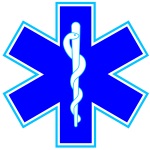CORE Opioid Addiction Recovery
Section 5 -MEDICAL
5.23 CORE Opioid Addiction Recovery
These patients have suffered an opioid overdose or poisoning resulting in a decreased level of consciousness and near or complete respiratory arrest. Absence of consciousness/respirations have been treated by bystanders, law enforcement or EMS crew with naloxone (Narcan, Kloxxado, etc).
AFTER INITIAL MEDICAL CARE:
PRECIPTIATED OPIOID WITHDRAWAL:
Once the patient has received naloxone (Narcan/Kloxxado) and has had a recovery/return to consciousness and adequate respirations, they will likely be in a precipitated opioid withdrawal. The symptoms of opioid withdrawal include increased pulse rate, sweating, restlessness, tremors, anxiety or irritability, etc.
The Clinical Opiate Withdrawal Scale (COWS) is an 11-item scale designed to be administered by a clinician, nurse, medic. This tool can be used to reproducibly rate common signs and symptoms of opiate withdrawal and monitor these symptoms over time. Note: The COWS exam is a tool, not a hard requirement for care.
COWS Score for Opiate Withdrawal Calculator
|
Resting Pulse Rate: beats/minute |
GI Upset: over last 1/2 hour 0 no GI symptoms |
| Sweating: over past 1/2 hour not accounted for by room temperature or patient activity. 0 no report of chills or flushing |
Tremor observation of outstretched hands 0 no tremor |
| Restlessness Observation during assessment 0 able to sit still |
Yawning Observation during assessment 0 no yawning |
| Pupil size 0 pupils pinned or normal size for room light |
Anxiety or Irritability 0 none |
| Bone or Joint aches if patient was having pain previously, only the additional component attributed to opiates withdrawal is scored |
Gooseflesh skin 0 skin is smooth |
| Runny nose or tearing Not accounted for by cold -symptoms or allergies 0 not present |
Score: 5- 12 = mild |
Patients with signs of precipitated opioid withdrawal including increased pulse rate, sweating, restlessness, tremors, anxiety or irritability, etc. can be offered a safe way to start the recovery process and remove or significantly reduce opioid cravings and the precipitated withdrawal symptoms.
AGGREEMENT TO TRANSPORT AND TREAT WITH BUPRENORPHINE: Patients precipitated opioid withdrawal who agree to start recovery and agree to transport to a designated CORE transport facility with initiation of Buprenorphine treatment during transport as a safe way to start the recovery process. Patients MUST agree to the transport and transport must be started to receive Buprenorphine treatment to remove or significantly reduce opioid cravings and the precipitated withdrawal symptoms.
START THE TRANSPORT AND TREAT WITH BUPRENORPHINE:
- ADMINISTER BUPRENORPHINE 8mg ODT/Film orally. Pt encouraged to let the entire film/tab dissolve in their mouth (below the tongue) for maximum effect. Swallowing the tab will have little immediate benefit.
- Verify 1-2 times after administration that the ODT/Film is being dissolved appropriately and not being relocated for later diversion (selling) and/or not swallowed.
- RECHECK for signs of withdrawal/COWS score in 4-6 minutes.
If no improvement or inadequate improvement:
- ADMINISTER 2nd BUPRENORPHINE 8mg ODT/Film orally. Pt encouraged to let the entire film/tab dissolve in their mouth for maximum effect.
- Verify 1-2 times after administration that the ODT/Film is being dissolved appropriately and not being relocated for later diversion (selling) and/or not swallowed.
- RECHECK for signs of withdrawal/COWS score in 4-6 minutes.
If no improvement or inadequate improvement:
- ADMINISTER 3rd BUPRENORPHINE 8mg ODT/Film orally. Pt encouraged to let the entire film/tab dissolve in their mouth for maximum effect.
- Verify 1-2 times after administration that the ODT/Film is being dissolved appropriately and not being relocated for later diversion (selling) and/or not swallowed.
- RECHECK for signs of withdrawal/COWS score in 4-6 minutes.
MAXIMUM OF 3 BUPRENORPHINE 8MG TABS DURING TRANSPORT.
- Pass on dosing and patient response to receiving facility.
TRANSPORT TO AN APPROPRIATE RECEIVING FACILITY FOR CORE PATIENT TRANSPORTS: To date the only facility of choice listed below has agreed to receive CORE patients treated with Buprenorphine and to continue care and stabilize as well as coordinate and navigate these patients to continued opioid addiction treatments including referring to an outpatient MAT provider, mental health support, peer counseling, transportation, housing and community paramedic support:
- AdventHealth Altamonte
